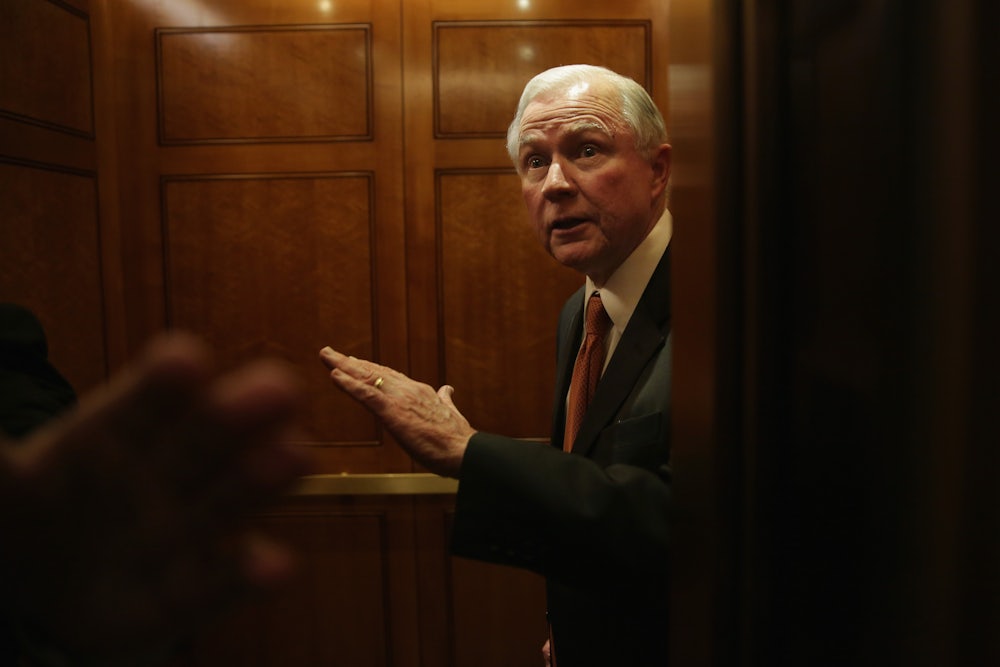The attorney general is speaking Tuesday at Georgetown University Law Center in Washington, D.C., where he will declare, “Freedom of thought and speech on the American campus are under attack,” according to excerpts obtained by Fox News. “The university is supposed to be about the search for truth,” Sessions reportedly will say, “not the imposition of truth by a government censor,” but academia is “transforming into an echo chamber of political correctness and homogenous thought, a shelter for fragile egos.”
In fact, it appears that Georgetown is sheltering Sessions’s fragile ego, shielding him from tough questions after his talk. The law school only announced the appearance on Monday, and students who subsequently RSVP’ed received an email saying they’d be shut out of the event:
here's the email georgetown is sending students who've been shut out of jeff sessions's talk on campus free speech tomorrow. pic.twitter.com/5dlmpn4283
— Jake Flanagin (@jakeflanagin) September 25, 2017
Sessions will be addressing a select group of students affiliated with the school’s Center for the Constitution, which promotes the conservative constitutional interpretation known as originalism. The attorney general will be in conversation with the center’s director, Professor Randy Barnett, who will ask a series of pre-screened questions. (Though a vocal Trump critic, Barnett is a prominent libertarian and “one of the most influential originalist scholars at work today,” according to the libertarian magazine Reason.)
All of this smacks of hypocrisy, says law student Lauren Phillips. “It’s extraordinarily hypocritical that Attorney General Session would be lecturing future attorneys about the importance of free speech on campus while actively excluding the wider student body,” she told me on Monday night. “It’s just amazing. I still can’t really believe it’s happening like this.”
Phillips is helping organize a protest outside of Sessions’s noontime speech at McDonough Hall. She said at least 200 students plan to attend, armed with the questions they would have asked the attorney general:
- “Why does the Administration feel that on-campus student demonstrations are more worthy of criticism than violent white supremacist rallies?”
- “Why does private citizens protesting during the national anthem before NFL games warrant more of the Administration’s attention than the ongoing crisis in Puerto Rico?”
- “Why does the Administration continue to advance expensive, outdated, and racist criminal policies in the face of robust bipartisan opposition?”
That Sessions is hiding from such criticism proves that snowflakes come in all shapes and sizes.
